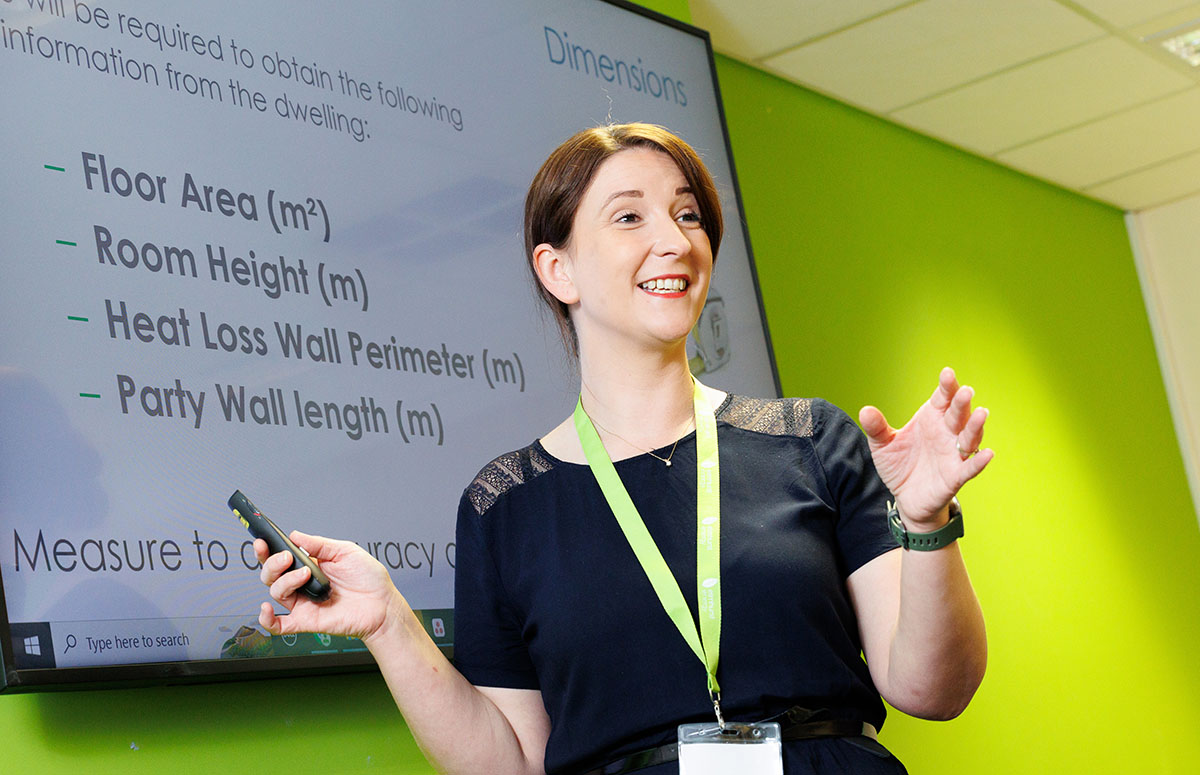
The UK’s Leading Provider of Energy Assessment and Retrofit Training
When it comes to developing skills and knowledge in energy assessment, Energy Performance Certificates (EPCs), and retrofitting, Elmhurst Energy are the go-to experts! With 30+ years of experience, Elmhurst Energy offers expert, personalised training for both newcomers and experienced professionals. Our wide range of qualifications and CPD courses help you build or enhance your career in the industry.
But we’re more than just a training provider!
Elmhurst Energy is also a Government and TrustMark-approved accreditation body for energy assessors and retrofit professionals. This means we don’t just teach—we support you throughout your training and career with expert guidance from our technical support team. We are more than just a place to learn; we are a partner in your professional growth.
BROWSE COURSESOur Training Quality Promise
In a constantly evolving industry, staying current is key. Our close ties with the sector ensure our courses remain relevant and up to date, offering you knowledge that’s not only timely but timeless. Here is what we pledge:
✅ Expertise –Trainers are not only qualified but come with invaluable industry experience.
✅ Adaptability – We’re always fine-tuning our courses based on your feedback to enhance your learning experience.
✅Personalised Support – With guidance tailored to your pace, we make sure learning is as individual as you are.
✅ Transparent Pricing – Our all-inclusive pricing means you focus on learning, not on fees.
✅ Leave with confidence – Complete your course ready to tackle the industry and your role head-on, armed with practical skills and real-world knowledge.
Training Delivery
Elmhurst Energy offers a number of training delivery options tailored to your needs.

In House Training
Elmhurst provides training for many corporate clients including local authorities, social landlords, large companies and estate agents. Our extensive experience in building energy performance and retrofit makes us the go-to choice for high quality training that is recognised across the industry, and has the added bonus of including free follow-up support.
For larger groups, we can arrange in house training which can be delivered in a location, and at a time, which suits your organisation. In addition to this we can also try to adapt our off the shelf courses to fit your specific business needs
Our dedicated training team will work with you to create a course that fits your requirements and meets your desired learning outcomes.
REQUEST IN HOUSE TRAINING
LEARN MORE
If you’re looking to learn more, download our comprehensive training brochure now. Inside, you’ll find detailed information about our most popular courses, funded training opportunities, and much more.
Or get in touch with us for more information on how you can start your journey with Elmhurst Energy today.



